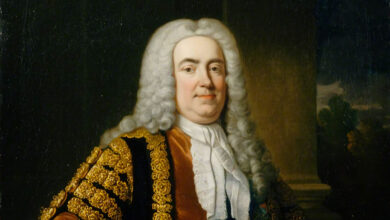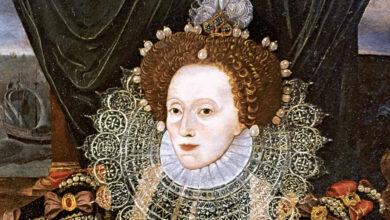George Canning (1770-1827) was a British statesman who carved his name in history through his diplomatic prowess and brief stint as Prime Minister. Born on April 11, 1770, in Marylebone, London, Canning wasn’t born into privilege. However, his intellect and wit gained him the support of wealthy relatives who financed his education at Eton and Oxford. Initially pursuing a legal career, Canning’s true calling lay in politics. He quickly secured influential backing from Prime Minister William Pitt the Younger and embarked on a meteoric rise.
Canning’s political views leaned towards Toryism, but he was known for his pragmatism and willingness to compromise. He held various cabinet positions under multiple Prime Ministers, most notably serving twice as Foreign Secretary. He championed a more assertive foreign policy for Britain in this role, particularly regarding European affairs during the Napoleonic Wars. His opposition to slavery and his support for newly independent South American nations also left a lasting mark. In 1827, after the death of Lord Liverpool, Canning finally ascended to the coveted position of Prime Minister. However, his tenure was tragically short-lived. He died just four months later, on August 8, 1827, in Chiswick, London. Despite the brevity of his premiership, Canning’s legacy as a skilled diplomat and advocate for a more active British foreign policy remains significant.




